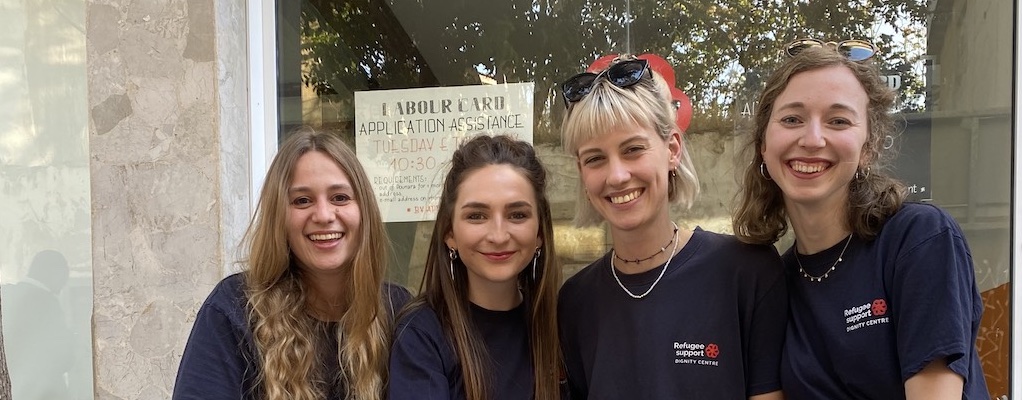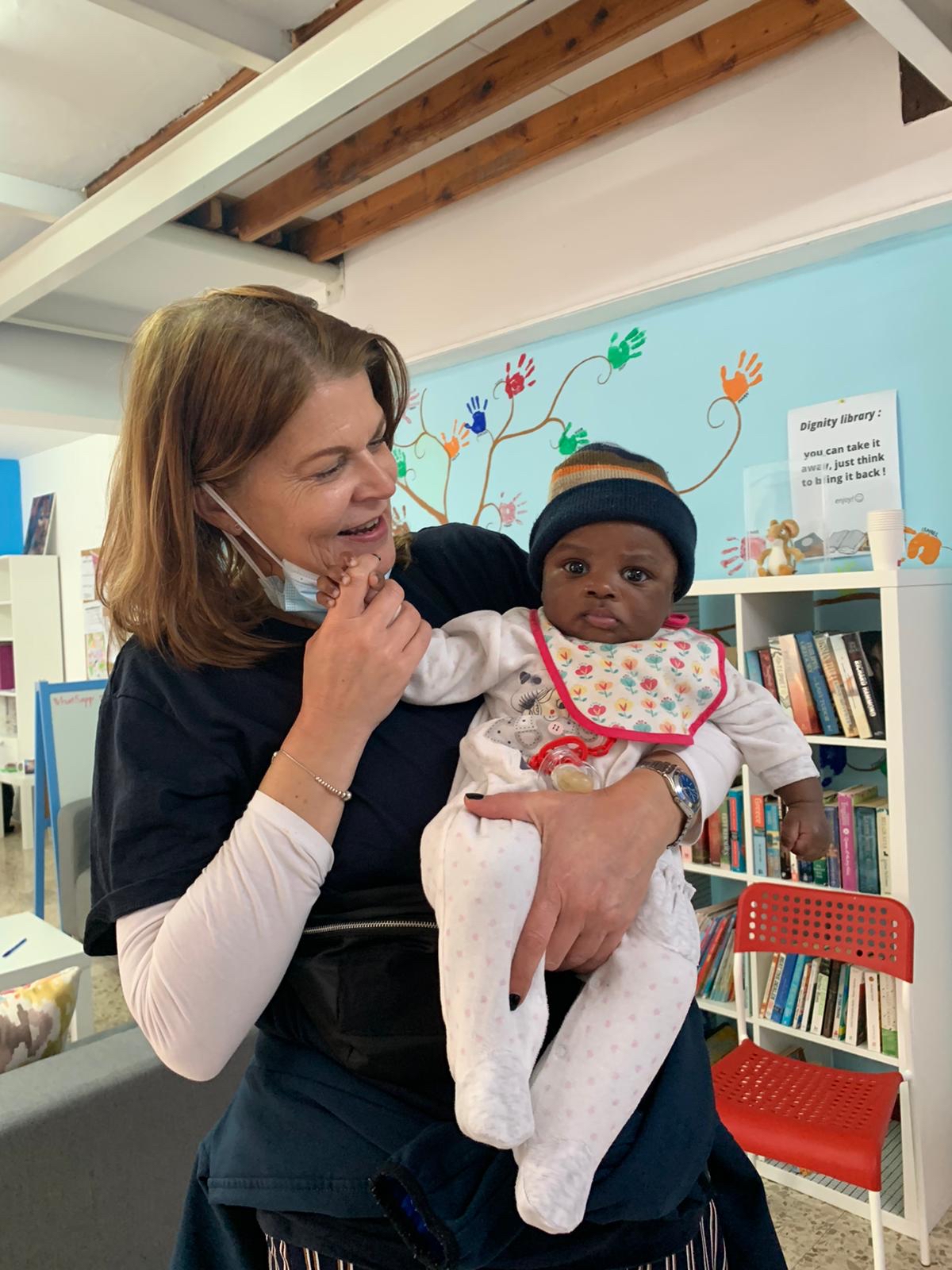Before coming to Cyprus, conflict and displacement were only as close as I got to my phone screen.
In a baking hot city, split in half due to conflict, there are dusty streets and ice cream stands and the best Armenian food place, a city shared by tourists, locals, refugees, business people and students. Refugee Support EU’s Dignity Centre, surrounded by tall, old buildings, cats sunbathing, and children playing football, sits nestled into the dynamic and diverse city, which is Nicosia. Upon first glance, its glass windows suggest mystery and formality, with people milling about both inside and outside.
 Overwhelmed by the first day rush, the Coordinator gave us a run down of the system at the Dignity Centre, how people are released from camp and how we welcome and register them at the centre. It only took us days to understand how much weight the Centre held in the city.
Overwhelmed by the first day rush, the Coordinator gave us a run down of the system at the Dignity Centre, how people are released from camp and how we welcome and register them at the centre. It only took us days to understand how much weight the Centre held in the city.
Many people rely on the centre, not only for help and support with documents, applications and guidance, or their weekly food shop, but as a hub for human connection. Members relaxing on the sofas, inside jokes bouncing off the walls, jokes about the weather and the sweet tasting tea. Somebodies phone rings, “I’m at Dignity!”, he shouts when he answers.
There are smiles and support and someone handing around a tray of biscuits, somebody else explains access to free language lessons and those by the door huddle around laptop screens with government webpages and re-applications.
On hot and mildly quiet afternoons, myself and another volunteer play music through the speaker in the market and members flit in and out dancing as they shop and requesting songs, sometimes we exclaim with excitement about shared music taste, scrolling through phones to show a song we almost forgot. 
We slip easily into conversations, signposting to the free fruit and vegetable market and similar NGOs operating in the other cities, members debate asylum case dates, and then conversations about music, spirituality, or stories about families from back home.
As the weeks go on, I understand the centre to being a symbol of hope within the community, problems although not always able to be solved right away, are tackled with patience and huge effort.
The volunteers and coordinators are kind hearted, generous and intuitive people, supporting members who are caring, brave and hopeful for the future.
My time at Refugee Support EU was funded partially by my university and partially by the UK government, now, I answer emails and try to find the right words to summarise my time at Dignity.

Something I keep circling back to is anger and frustration, at the lottery of where in the world we are born.



